Latest News
Amnesty International urges Afghan gov’t prioritize release of women prisoners

 The Amnesty International Friday urged the Afghan government to take immediate steps to implement President Ghani’s decree to release prisoners to control the spread of COVID-19.
The Amnesty International Friday urged the Afghan government to take immediate steps to implement President Ghani’s decree to release prisoners to control the spread of COVID-19.
The organization called on the authorities to prioritize women prisoners.
It said as the number of cases in Afghanistan rises, there are fears that prisoners in overcrowded detention facilities, often where up to five people are squeezed into a single cell in unsanitary conditions and without access to adequate health facilities, are at high risk of infection.
“Ten days have passed since Afghanistan’s President ordered the release of prisoners and nothing has happened. Every day, the risk to them rises. At particular risk are women prisoners, many of whom have children with them. There is ongoing discrimination against women and girls in general in Afghanistan,” said Biraj Patnaik, South Asia Director at Amnesty International.
He noted that this discrimination beside many other challenges makes women least important, emphasizing, “The government must take immediate measures for the release of these women and for them to be safely relocated to limit the risk to them,”
Afghan civil society groups have raised concerns about the conditions of women prisoners. In an open letter to President Ashraf Ghani this week, the Afghan Women’s Network pointed out that many women prisoners at risk have not committed serious crimes or are yet to be convicted. Many of them are also mothers, with their children in custody with them. Like elsewhere in South Asia, Afghanistan’s prisons are overpopulated.
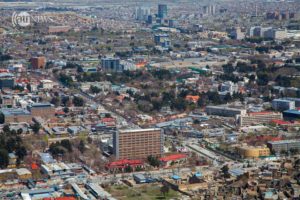 Afghanistan faces particular challenges in dealing with the COVID-19 outbreak given the continuing conflict in the country, poor health infrastructure with just 300 ventilators, a shortage of doctors and other trained health workers, and a lack of testing facilities.
Afghanistan faces particular challenges in dealing with the COVID-19 outbreak given the continuing conflict in the country, poor health infrastructure with just 300 ventilators, a shortage of doctors and other trained health workers, and a lack of testing facilities.
With a lockdown imposed in parts of the country, including Kabul, daily wage earners, internally displaced people and other marginalized are also at high risk – faced with the cruel choice between infection and starvation, in a country where the government is dependent on international assistance for three-quarters of its national budget.
The western province of Herat is the epicenter of the COVID-19 crisis, followed by Kabul, the capital. Both Herat and Kabul are where the majority of women prisoners are located.
To date 521 cases have been reported across the country, affecting 27 out of 34 provinces, and resulting in at least 15 deaths.
Afghanistan does not have the resources it needs to deal with this crisis. This makes it more important that the government takes whatever steps it can to limit the spread of the virus, starting with groups who are most at risks such as prisoners including women and marginalized.
“It’s also crucial that the international community steps in to bolster the Afghan government’s efforts. Few countries have suffered as much as Afghanistan in recent years. The people of Afghanistan must not be abandoned at this crucial moment when they urgently need the world’s attention,” Biraj Patnaik said.
Latest News
Panjshir to Kabul water conduit project ‘waiting for budget approval’
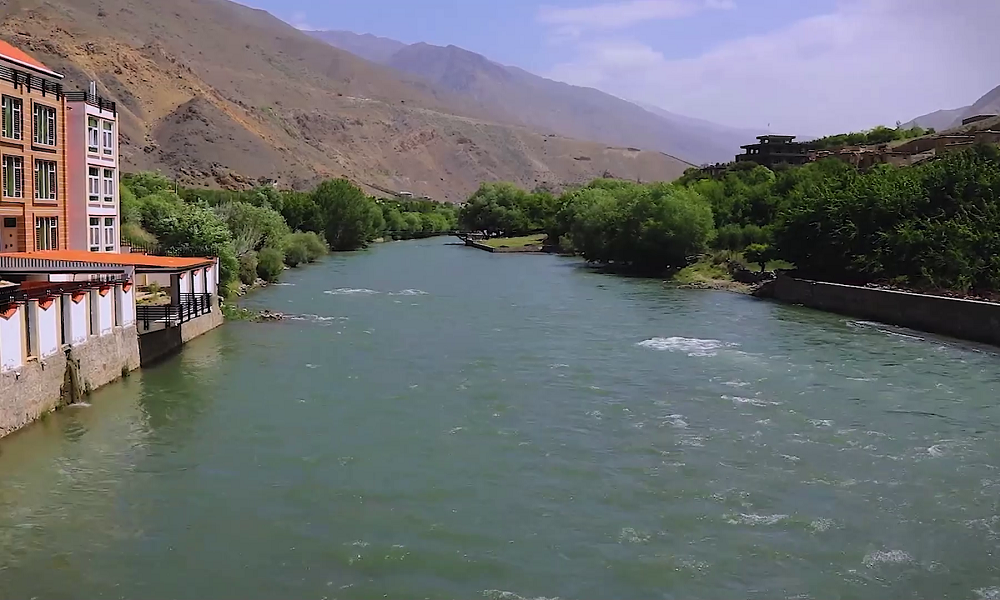
Afghanistan’s Ministry of Energy and Water is waiting for budget approval on the much-needed Panjshir to Kabul water conduit project – which, once completed, will alleviate the severe water shortage crisis in the capital.
Matiullah Abid, spokesperson for the Ministry of Energy and Water, confirmed the initial phase of reviewing and planning of the project is complete and construction work will start as soon as the budget has been approved.
Abid said the aim of the project is to help reduce water shortage issues in Kabul..
“The survey, design, and technical studies of the Panjshir water transfer project have been completed by the Ministry of Energy and Water, and the project [budget] has been sent to the leadership of the Islamic Emirate for approval,” he said.
“This project will commence once it is approved and the budget is available.”
The water conduit project will cover a distance of over 200 kms starting in Bazarak in Panjshir and ending in Tarakhail in Kabul.
Residents of Kabul have welcomed the plan and said once complete the additional water will help alleviate the drinking water crisis.
Experts meanwhile believe that this project could help Kabul’s groundwater levels to improve.
“I believe that the Panjshir water transfer project will help replenish underground water sources once again, and the people will have access to clean and healthy water. Additionally, with the transfer of Panjshir water, the agricultural lands around Kabul will also be managed with water, which, in turn, will create job opportunities for the people,” said Abdul Nasir Reshtia, an economic expert.
The plan to transfer water from the Panjshir River to Kabul was designed in 2012. In the 2020 budget of under the previous government, around $5 million was allocated for the annual transfer of 100 million cubic meters of Panjshir River water to Kabul.
The project was expected to be completed by 2023 but never got off the ground until the Islamic Emirate takeover.
Latest News
Female journalists complain about lack of access to accurate and timely information
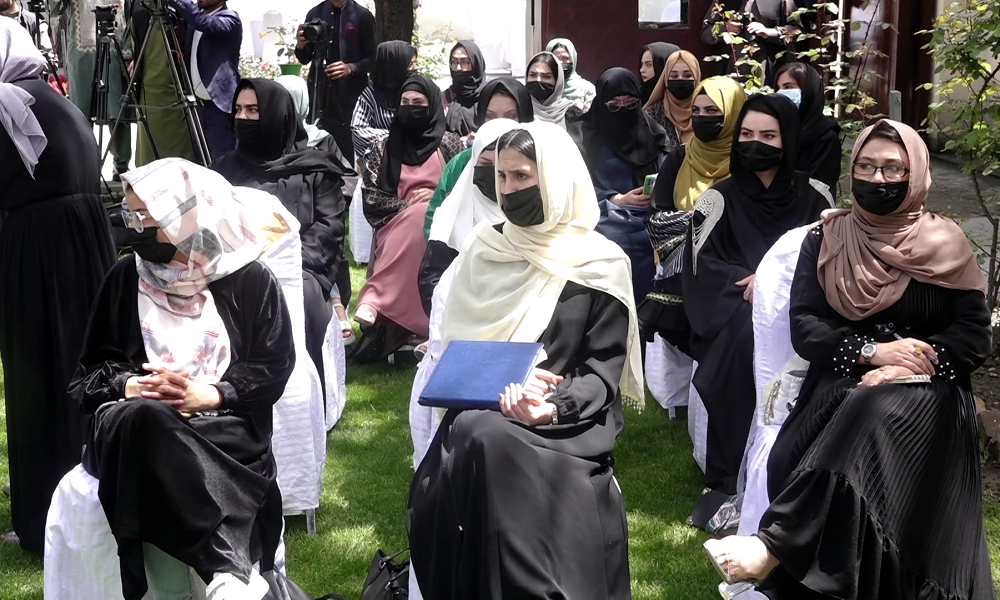
A number of female journalists say the lack of access to accurate and timely information leads to numerous challenges in their course of work.
According to some of these journalists, certain officials of the Islamic Emirate often refuse to provide information to female journalists, which creates a significant obstacle in fulfilling their professional duties.
One female journalist said: “Unfortunately, we have been subjected to intimidation by some institutions and media outlets, which hinders our work. In this regard, we urge our own media and various institutions to support female journalists the same way they support male journalists, and to allow us to continue our work.”
It is also reported that cultural and social restrictions make it difficult for female journalists to carry out their activities.
Female journalists have added that their exclusion from the media not only weakens freedom of speech but also deprives society of the perspectives and experiences of half of its population.
However, some media support organizations emphasize that the working conditions for female journalists have improved compared to last year, and currently, 745 female journalists are working in various media outlets across the country.
“The number of female journalists has increased compared to last year. Currently, 745 female journalists are working in the media. Last year, the number was 601,” said Hujjatullah Mujaddidi, head of the Afghanistan Independent Journalists Union.
Meanwhile, the Ministry of Information and Culture has stressed that the current media situation is favorable, and the ministry is committed to supporting journalists and media outlets in various sectors.
Since the IEA’s takeover in August 2021, many female journalists have lost their jobs, and some have been forced to leave the country.
Latest News
Pakistan ‘extends’ deadline for a week for Afghans to leave the country

The Pakistan government has pushed out the deadline to next week for hundreds of thousands of Afghan refugees to return to their country due to Eid al-Fitr.
AFP reported that a government official said on condition of anonymity that “the deadline has been extended until the beginning of next week due to Eid holidays.”
In early March, Islamabad announced a March 31 deadline for Afghans holding certain documentation to leave the country.
Afghans holding Afghan Citizen Cards (ACC) — issued by Pakistan authorities and held by 800,000 people, according to the United Nations — face deportation to Afghanistan after the deadline.
More than 1.3 million Afghans who hold Proof of Registration (PoR) cards from the UN refugee agency, UNHCR, are also to be moved outside the capital Islamabad and neighbouring city Rawalpindi.
On Friday, Pakistan’s Federal Interior Minister Mohsin Naqv chaired a high-level meeting to review the repatriation process of ACC holders.
He stated that continuous coordination is being maintained between the federal and provincial governments regarding the repatriation process, and the federal government will provide full support to the provinces.
Additionally, a committee has been formed based on the recommendations of the Chief Minister of Khyber Pakhtunkhwa, he said.
Naqvi also stated that Pakistan’s Minister of State for Interior Tallal Chaudhry will visit the provinces to resolve any issues arising during the repatriation process.
In addition, all arrangements for the repatriation of Afghan Citizen Card holders have been completed, Naqvi said, adding that a door-to-door awareness campaign is underway, and the mapping of Afghan Citizen Card holders has been finalized.
Holding centers, food provisions, and healthcare facilities have also been arranged for those returning, he said.
-

 Latest News5 days ago
Latest News5 days agoMore than 70,000 Afghans returned home in third week of March: IOM
-

 Health4 days ago
Health4 days agoGlobal organizations warn of health crisis due to aid cuts in Afghanistan
-

 International Sports5 days ago
International Sports5 days agoChennai grapple with IPL home truth after Bengaluru defeat
-
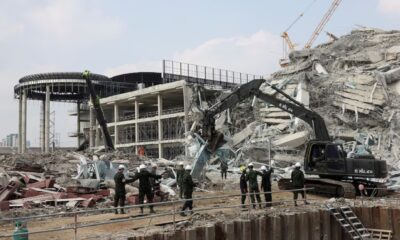
 World5 days ago
World5 days agoMyanmar quake death toll nears 700 as international aid starts to arrive
-

 World3 days ago
World3 days agoMyanmar quake death toll hits 1,700 as aid scramble intensifies
-

 Sport4 days ago
Sport4 days agoIPL 2025: Gujarat Titans beat Mumbai Indians by 36 runs
-
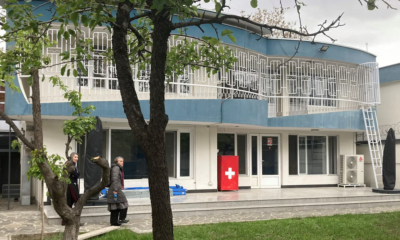
 Latest News2 days ago
Latest News2 days agoSwitzerland re-establishes presence in Kabul with humanitarian office
-
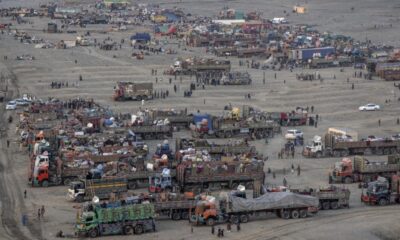
 Latest News3 days ago
Latest News3 days agoPakistan plans to expel 3 million Afghan refugees this year















